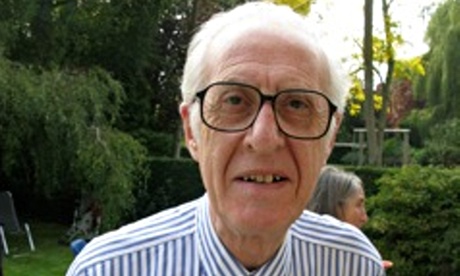Neil Pride, who has died aged 85, was a world-renowned respiratory physician and physiologist who made enormous contributions to our understanding of common lung diseases. He was my friend and colleague for 40 years.
Neil’s research unravelled the mechanisms of airway narrowing in common lung conditions such as asthma and chronic obstructive pulmonary disease. He was one of the earliest researchers in COPD, now the third commonest cause of death in the UK, probing its underlying mechanisms and helping us to understand how treatments work. His scientific output dealt with the mechanics of every aspect of the respiratory system, from the nose to the diaphragm, including coughing.
Born in Croydon, south London, to Alan Pride, a general practitioner, and his wife, Nan (nee Blair), Neil was educated at Bryanston school, Dorset. He studied preclinical medicine at Christ’s College, Cambridge, and proceeded to clinical studies at St Mary’s hospital medical school in Paddington, central London, qualifying as a doctor in 1956.
After training posts in London and Cambridge, in 1962 he went to work in the US with a well-known respiratory physiologist, Solbert Permutt, at Johns Hopkins University in Baltimore, then spent some time at the Cardiovascular Research Institute in San Francisco. Neil returned to London in 1964 to work at King’s College hospital and was promoted to senior lecturer and honorary consultant at King’s in 1968.
Later that year he moved to the Royal Postgraduate Medical School and Hammersmith hospital as senior lecturer in medicine, and established his international reputation as a respiratory physiologist. He subsequently became professor of respiratory medicine and head of the division of respiratory medicine, remaining there until his retirement in 1996. He was made emeritus professor of respiratory medicine at Imperial College and continued his research at the National Heart and Lung Institute at the Royal Brompton. He worked part-time on various research projects until two years before his death and published several papers.
He was an outstanding intellect, who understood respiratory physiology better than anyone, as well as a skilled physician. He was extraordinarily well-read and had an amazing memory, never seeming to forget anything that he had heard. A very gifted teacher, he was able to simplify complex ideas in lung physiology. And as a doctor he was much loved by his patients.
For all his brilliance, he was modest and generous. His writing was as clear as his talks and he published many influential papers, reviews, chapters and books. He was president of the British Thoracic Society and received the BTS medal. Outside work, his passions were music, cricket, reading and travel.
He is survived by his wife, Roma (nee Jones), whom he married in 1962, two daughters, Fiona and Catherine, and two grandchildren.










